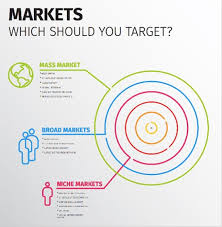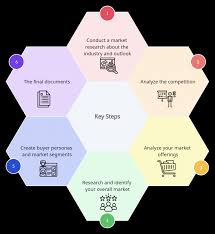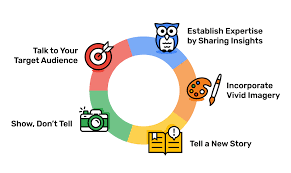Influencer PR Agency: Harnessing the Power of Influence for Effective Brand Communication
In today’s digital age, social media has transformed the way we connect, engage, and consume information. With millions of users actively following influencers across various platforms, brands have recognized the immense potential of influencer marketing as a powerful tool to reach their target audience. This realization has led to the rise of influencer PR agencies, specialized firms that bridge the gap between brands and influencers to create impactful communication strategies.
An influencer PR agency acts as a strategic partner for brands seeking to leverage the power of influencers in their marketing campaigns. These agencies have a deep understanding of the influencer landscape and possess the expertise to identify suitable influencers who align with a brand’s values and objectives. By carefully selecting influencers who resonate with a brand’s target audience, an influencer PR agency can ensure that every campaign delivers maximum impact.
One of the key advantages of partnering with an influencer PR agency is their ability to develop comprehensive communication strategies that integrate influencer marketing seamlessly into a brand’s overall marketing plan. These agencies work closely with brands to understand their unique needs and objectives, enabling them to create tailored campaigns that effectively communicate key messages while maintaining authenticity.
Additionally, an influencer PR agency handles all aspects of influencer collaborations on behalf of brands. From initial outreach and negotiation to campaign management and performance tracking, these agencies serve as a single point of contact for both brands and influencers. This streamlined approach saves valuable time and resources for brands, allowing them to focus on other core aspects of their business.
Moreover, an experienced influencer PR agency possesses extensive knowledge about regulations and guidelines surrounding sponsored content and disclosure requirements. They ensure that all collaborations adhere to legal standards, protecting both brands and influencers from potential issues.
Furthermore, an influencer PR agency brings valuable insights into campaign measurement and analytics. They utilize advanced tools to track key performance indicators such as reach, engagement rates, and conversion rates. This data-driven approach enables brands to assess the success of their influencer campaigns and make informed decisions for future strategies.
Ultimately, partnering with an influencer PR agency can significantly enhance a brand’s communication efforts. By leveraging the power of influential voices, brands can amplify their reach, build credibility, and establish a genuine connection with their target audience.
In conclusion, influencer PR agencies play a crucial role in helping brands navigate the complex world of influencer marketing. Their expertise in identifying suitable influencers, developing tailored strategies, managing collaborations, and measuring campaign success ensures that brands can effectively harness the power of influence to achieve their communication goals. As the digital landscape continues to evolve, influencer PR agencies remain at the forefront of innovative brand communication strategies, driving meaningful engagement and delivering tangible results.
9 Essential Tips for Effective Influencer PR Agency Engagement
- Research influencers to find the ones that are well-suited to your brand and target audience.
- Develop a strategy for engaging with influencers that aligns with your brand values and goals.
- Use an influencer PR agency to help you identify the right influencers for your campaign and create a tailored approach for each one of them.
- Set clear objectives before engaging with an influencer so you can measure the success of your campaign.
- Make sure you have a budget in place before working with an agency or individual influencers, as this will help ensure you get the most out of your investment in them.
- Ensure that all content created by the influencer is authentic and follows any relevant regulations or guidelines set out by regulators such as Ofcom or ASA (Advertising Standards Authority).
- Monitor how successful each piece of content is, so that you can optimise future campaigns based on what works best for your target audience and objectives
- Track conversations around topics related to your brand or product, so that you can engage with potential customers who are interested in what you have to offer
- Stay up-to-date with changes in trends, regulations, platforms etc., so that you can stay ahead of the competition when it comes to engaging with influencers
Research influencers to find the ones that are well-suited to your brand and target audience.
Researching Influencers: The Key to Successful Brand-Targeted Communication
In the dynamic world of influencer marketing, one of the most crucial steps for brands is to find influencers who are well-suited to their brand identity and target audience. Researching influencers allows brands to identify individuals whose values, content, and reach align with their own, ensuring a more effective and authentic brand-targeted communication strategy.
When it comes to influencer PR agencies, thorough research plays a vital role in their process. These agencies delve into the influencer landscape, employing various tools and techniques to identify potential influencers who can amplify a brand’s message and engage with the desired audience.
The first step in researching influencers is defining your brand’s target audience. By understanding who your ideal customers are, you can narrow down your search to influencers whose followers match that demographic. Look at factors such as age, location, interests, and buying habits to create a clear profile of your target audience.
Next, explore different social media platforms where influencers thrive. Each platform has its own unique features and user base. For example, Instagram may be popular for lifestyle and fashion content, while YouTube might be more suitable for educational or entertainment-focused content. By understanding the strengths of each platform, you can identify which ones align best with your brand’s goals.
Once you have identified suitable platforms, start researching individual influencers within your niche. Look at their content quality, engagement rates (likes, comments), follower count, and overall reputation within their community. Pay attention to how well they interact with their followers and whether their values align with your brand’s mission.
Furthermore, consider the authenticity of an influencer’s engagement. Look beyond follower count alone; focus on genuine interactions rather than inflated numbers. Influencers who have built trust with their audience through meaningful connections will likely yield better results for your brand.
Another aspect of research involves reviewing an influencer’s previous collaborations. Assess how well they have partnered with other brands and if their content seamlessly integrates with the brand’s message. This will give you an idea of how they might represent your brand and whether their style is a good fit.
Lastly, don’t be afraid to reach out to influencers directly or through an influencer PR agency. Initiate conversations to discuss potential collaborations, gauge their interest in your brand, and ensure that they are open to long-term partnerships. Building a strong relationship with influencers is essential for successful and ongoing brand-targeted communication.
In conclusion, thorough research is the foundation of successful influencer marketing campaigns. By taking the time to identify influencers who resonate with your brand values and target audience, you can create more authentic connections, increase engagement, and achieve better results. So invest in research, collaborate wisely, and watch as your brand’s message reaches new heights through strategic influencer partnerships.
Develop a strategy for engaging with influencers that aligns with your brand values and goals.
Developing a Strategy for Engaging with Influencers: Aligning Brand Values and Goals
In the realm of influencer PR, one key tip stands out as crucial: developing a strategy for engaging with influencers that aligns with your brand values and goals. In today’s digital landscape, where authenticity and credibility are paramount, this approach can make all the difference in the success of your influencer marketing campaigns.
When it comes to influencer collaborations, it’s essential to carefully select influencers who resonate with your brand’s values and target audience. A successful partnership is built on shared values, as it ensures that the influencer’s content will authentically reflect your brand’s identity. By aligning with influencers whose values align with yours, you can create a genuine connection that resonates with your target audience.
To begin developing an effective strategy, take the time to research and identify influencers who have a natural affinity for your brand. Look for individuals who actively engage with topics or causes related to your industry or niche. By partnering with influencers who already have an interest in what you offer, you increase the likelihood of creating authentic content that genuinely connects with their followers.
Additionally, consider the goals you want to achieve through influencer collaborations. Are you aiming to increase brand awareness? Drive sales? Promote a specific product or service? By defining clear objectives, you can tailor your engagement strategy accordingly. For example, if your goal is to drive sales, consider working with influencers known for their ability to generate conversions through their content.
Another aspect to consider is the type of content that best suits your brand and resonates with your target audience. Some influencers excel at creating visually appealing content through platforms like Instagram or YouTube, while others may excel at producing informative blog posts or engaging podcasts. Understanding which format aligns best with your brand will help you identify the most suitable influencers for collaboration.
Once you’ve identified potential influencers, take the time to build relationships with them. Engage with their content, leave thoughtful comments, and share their posts. This genuine interaction not only helps establish a connection but also allows you to gauge their responsiveness and engagement with their audience.
Remember that successful influencer partnerships are built on mutual trust and respect. Be transparent about your brand’s expectations, goals, and guidelines for collaboration. Open communication ensures that both parties are aligned and working towards the same objectives.
Lastly, regularly evaluate the success of your influencer campaigns. Monitor key performance indicators such as reach, engagement rates, and conversions to assess the impact of each collaboration. This data-driven approach allows you to refine your strategy over time and make informed decisions for future partnerships.
In conclusion, developing a strategy for engaging with influencers that aligns with your brand values and goals is paramount to successful influencer PR campaigns. By selecting influencers who share your values, setting clear objectives, choosing suitable content formats, fostering relationships, and evaluating campaign performance, you can create impactful collaborations that resonate with your target audience and drive meaningful results for your brand.
Use an influencer PR agency to help you identify the right influencers for your campaign and create a tailored approach for each one of them.
In the ever-expanding world of influencer marketing, finding the right influencers for your brand can be a daunting task. However, by enlisting the help of an influencer PR agency, you can streamline this process and ensure that your campaign reaches its full potential.
An influencer PR agency has the expertise and industry knowledge to identify influencers who align perfectly with your brand’s values and objectives. They understand that it’s not just about follower counts but also about finding influencers who have an authentic connection with their audience. By partnering with an influencer PR agency, you can tap into their vast network of influencers and gain access to valuable insights that will help you make informed decisions.
Once the right influencers have been identified, an influencer PR agency will work closely with you to create a tailored approach for each one of them. They understand that one size does not fit all when it comes to influencer marketing. Each influencer has their own unique style, voice, and audience. By customizing your approach for each influencer, you can ensure that your message resonates authentically with their followers.
This tailored approach involves collaborating with influencers on content creation, ensuring that it aligns seamlessly with your brand’s messaging and objectives. An influencer PR agency will provide guidance and support throughout this process, ensuring that the content is engaging, compelling, and compliant with any legal requirements.
By using an influencer PR agency to identify the right influencers for your campaign and create a tailored approach for each one of them, you can maximize the impact of your influencer marketing efforts. This strategic partnership allows you to leverage the power of influential voices in a way that is both authentic and effective.
In conclusion, in a world where consumers are increasingly seeking authenticity from brands, partnering with an influencer PR agency is a wise choice. Their expertise in identifying suitable influencers and creating tailored approaches ensures that your campaign not only reaches the right audience but also resonates with them on a deeper level. So, if you want to make the most out of your influencer marketing, consider using an influencer PR agency to guide you along the way.
Set clear objectives before engaging with an influencer so you can measure the success of your campaign.
Setting Clear Objectives: The Key to Measuring Success in Influencer PR Campaigns
In the dynamic world of influencer PR, it is crucial for brands to set clear objectives before engaging with an influencer. By defining your goals from the outset, you can effectively measure the success of your campaign and ensure that it aligns with your overall marketing strategy.
Setting clear objectives allows you to establish a roadmap for your influencer PR campaign. It provides a framework for both your brand and the influencer to work towards a common goal. Whether you aim to increase brand awareness, drive website traffic, or boost sales, having specific objectives helps guide the content creation process and ensures that every action taken contributes towards achieving those goals.
Moreover, clear objectives enable you to measure the impact of your influencer campaign accurately. By setting measurable key performance indicators (KPIs), such as reach, engagement rates, conversions, or even sentiment analysis, you can assess the effectiveness of your collaboration with an influencer. This data-driven approach provides valuable insights into the success of your campaign and helps you make informed decisions for future strategies.
When setting objectives for your influencer PR campaign, it is essential to ensure they are realistic and aligned with your brand’s values and target audience. Consider factors such as budget constraints, desired timeline, and the type of content that resonates best with your target market. Collaborating with an experienced influencer PR agency can be beneficial in this regard as they possess industry knowledge and expertise in identifying suitable influencers who align with your objectives.
Furthermore, communicating these objectives clearly to the selected influencer is vital for a successful partnership. Transparently sharing your expectations allows influencers to understand their role in achieving those goals and craft content that effectively conveys your brand message. It also fosters a collaborative relationship where both parties work together towards a shared vision.
Regular monitoring and evaluation are crucial throughout the duration of an influencer PR campaign. By tracking the progress of your campaign against the set objectives, you can make necessary adjustments or optimizations to maximize its impact. This iterative approach ensures that your influencer collaboration remains on track and delivers the desired results.
In conclusion, setting clear objectives before engaging with an influencer is a fundamental step in influencer PR campaigns. It provides direction, allows for accurate measurement of success, and ensures that your campaign aligns with your brand’s overall marketing strategy. By working towards specific goals and regularly evaluating performance, you can optimize your influencer collaborations to achieve maximum impact and drive tangible results.
Make sure you have a budget in place before working with an agency or individual influencers, as this will help ensure you get the most out of your investment in them.
Effective Budgeting: Maximizing Your Investment in Influencer PR Agencies
When it comes to working with an influencer PR agency or individual influencers, having a well-defined budget is essential to make the most out of your investment. A clear budget not only helps you allocate resources effectively but also ensures that you achieve your desired outcomes and maximize the return on your investment.
One of the primary reasons for establishing a budget is to set realistic expectations and goals for your influencer marketing campaigns. By determining how much you are willing to invest, you can align your objectives with the available resources. This allows you to identify the right influencers and develop strategies that are in line with your budgetary constraints.
Having a budget also helps in selecting the appropriate level of influencers for your campaign. Influencers’ fees can vary significantly based on their reach, engagement rates, and overall influence. With a predetermined budget, you can identify influencers who fit within your financial limits while still having a significant impact on your target audience.
Moreover, setting a budget enables you to plan for additional expenses that may arise during collaborations with influencers or agencies. These expenses could include production costs for high-quality content creation, sponsored posts or giveaways, influencer events or trips, and other promotional activities. By accounting for these potential costs upfront, you can avoid any unexpected financial burdens later on.
Additionally, having a clear budget allows you to negotiate effectively with influencers and agencies. When discussing collaboration terms and fees, being transparent about your budgetary constraints sets realistic expectations from the start. It also helps in building trust and fostering strong relationships with influencers or agencies by demonstrating professionalism and respect for their time and expertise.
Furthermore, an established budget enables you to track and measure the success of your influencer marketing campaigns accurately. By comparing the investment made against key performance indicators such as reach, engagement rates, conversions, or sales generated, you can evaluate the effectiveness of different partnerships and adjust future strategies accordingly. This data-driven approach helps optimize your investment and ensures that you are getting the most out of your collaboration with influencers or agencies.
In conclusion, having a budget in place before working with an influencer PR agency or individual influencers is crucial for maximizing the value of your investment. It allows you to set realistic goals, select appropriate influencers, plan for additional expenses, negotiate effectively, and measure campaign success accurately. By strategically allocating resources and aligning your objectives with your budget, you can ensure that your influencer marketing efforts deliver the desired outcomes while optimizing your return on investment.
Ensure that all content created by the influencer is authentic and follows any relevant regulations or guidelines set out by regulators such as Ofcom or ASA (Advertising Standards Authority).
Authenticity and Compliance: Key Factors in Influencer PR Agency Partnerships
In the dynamic world of influencer marketing, authenticity and compliance are paramount for successful brand communication. When partnering with an influencer PR agency, one crucial tip to remember is to ensure that all content created by the influencer aligns with the brand’s values and follows relevant regulations or guidelines set out by regulatory bodies such as Ofcom or ASA (Advertising Standards Authority).
Authenticity lies at the core of influencer marketing. It is essential to collaborate with influencers whose content resonates genuinely with their audience and aligns with a brand’s message. An influencer PR agency can assist in identifying influencers who possess an authentic voice and share values that complement those of the brand. By ensuring that the content created by influencers remains true to their personal style, interests, and beliefs, brands can establish a genuine connection with their target audience.
Compliance with regulations and guidelines is equally important in influencer marketing. Regulatory bodies such as Ofcom and ASA have established rules to ensure transparency and protect consumers from misleading advertising practices. Brands must work closely with their influencer PR agency to ensure that all content complies with these regulations.
For instance, it is crucial to clearly disclose any sponsored or paid partnerships between brands and influencers. This transparency builds trust among consumers, who appreciate knowing when content is promotional in nature. The influencer PR agency can guide both brands and influencers on how best to disclose these partnerships effectively.
Additionally, it is important to adhere to other relevant guidelines set out by regulatory bodies. For example, Ofcom provides guidelines on issues such as product placement, competitions, or promotions on social media platforms. By working closely with an influencer PR agency that understands these regulations, brands can navigate potential pitfalls and avoid any legal or reputational risks.
By ensuring authenticity and compliance within influencer partnerships, brands can maintain credibility while effectively reaching their target audience. An influencer PR agency acts as a valuable partner in this process, providing guidance and expertise to ensure that all content created by influencers is authentic, transparent, and compliant with relevant regulations.
In conclusion, when engaging in influencer marketing campaigns through an influencer PR agency, brands must prioritize authenticity and compliance. By partnering with influencers whose content aligns with the brand’s values and ensuring compliance with relevant regulations or guidelines, brands can build trust, establish genuine connections with their audience, and create impactful communication strategies that deliver results.
Monitor how successful each piece of content is, so that you can optimise future campaigns based on what works best for your target audience and objectives
Monitoring Content Success: Key to Optimizing Influencer PR Campaigns
In the fast-paced world of influencer PR campaigns, staying ahead of the game requires constant adaptation and optimization. One crucial tip for achieving this is to monitor the success of each piece of content produced as part of your campaign. By carefully analyzing the performance metrics, you can gain valuable insights into what works best for your target audience and objectives, allowing you to refine your future campaigns for maximum impact.
Tracking the success of your influencer content is essential for several reasons. Firstly, it helps you understand which types of content resonate most with your audience. By measuring engagement rates, such as likes, comments, shares, and click-throughs, you can identify patterns and preferences that indicate what captures their attention and generates a positive response. This knowledge enables you to tailor future content accordingly, increasing the likelihood of achieving your communication goals.
Secondly, monitoring content success allows you to evaluate the effectiveness of different influencers within your campaign. Not all influencers will yield the same results due to variations in their audience demographics or communication style. By analyzing the performance of each influencer’s content individually, you can identify those who consistently deliver strong outcomes and consider leveraging their influence further in future campaigns.
Furthermore, tracking content success provides valuable feedback on your overall campaign strategy. It allows you to assess whether specific messaging or creative approaches are resonating with your target audience or if adjustments need to be made. For example, if a particular type of content consistently underperforms compared to others, it may indicate a need for reevaluating its relevance or adjusting the delivery method.
To effectively monitor content success in influencer PR campaigns, leverage analytics tools that provide detailed insights into key performance indicators (KPIs). Platforms like social media analytics tools or campaign management software can offer comprehensive data on reach, engagement rates, conversion rates, and more. Regularly review these metrics throughout your campaign duration to track progress and identify areas for improvement.
Remember, optimizing future campaigns based on content success is an ongoing process. As the digital landscape evolves and audience preferences change, it’s crucial to stay attuned to these shifts and adapt your strategies accordingly. Continuously monitoring content success ensures that you remain agile, responsive, and in tune with your target audience’s needs.
In conclusion, monitoring the success of each piece of content within your influencer PR campaigns is a vital step towards optimizing future efforts. By understanding what resonates with your target audience, evaluating the effectiveness of different influencers, and refining your overall campaign strategy based on data-driven insights, you can consistently deliver impactful communication that drives results. Embrace the power of analytics tools and embrace a proactive approach to content monitoring – it will be key to unlocking the full potential of influencer PR campaigns.
In today’s digital landscape, tracking conversations around topics related to your brand or product is a valuable strategy employed by influencer PR agencies. By monitoring online discussions and social media platforms, brands can identify potential customers who are genuinely interested in what they have to offer. This proactive approach allows for meaningful engagement and the opportunity to build authentic connections.
Tracking conversations provides brands with valuable insights into the interests, preferences, and pain points of their target audience. By understanding the ongoing discussions surrounding their industry or niche, brands can tailor their messaging and communication strategies accordingly. This enables them to position themselves as knowledgeable experts and offer relevant solutions that resonate with potential customers.
Engaging with individuals who are already interested in your brand or product creates a unique opportunity for brands to showcase their expertise and establish trust. By actively participating in these conversations, brands can provide valuable insights, answer questions, and address concerns. This not only helps build credibility but also allows for direct interaction with potential customers, fostering a sense of connection and loyalty.
Furthermore, tracking conversations allows brands to identify influential voices within their industry or niche. These influencers can play a crucial role in amplifying brand messages and reaching a wider audience. Engaging with these influencers through thoughtful comments or direct messages can lead to potential collaborations that further enhance brand visibility and credibility.
In addition to engaging with potential customers, tracking conversations also enables brands to stay informed about the latest trends, emerging topics, and customer sentiment within their industry. This real-time knowledge empowers brands to adapt their strategies accordingly, ensuring they remain relevant and responsive to market demands.
Overall, tracking conversations around topics related to your brand or product is an effective strategy employed by influencer PR agencies. It allows brands to identify potential customers who are genuinely interested in what they have to offer and engage with them in meaningful ways. By actively participating in these conversations, brands can establish trust, showcase expertise, forge connections with influencers, stay informed about industry trends, and ultimately drive brand growth.
Staying Ahead in Influencer PR: Embracing Change for Effective Engagement
In the ever-evolving world of influencer PR, staying ahead of the competition is crucial to effectively engage with influencers and achieve impactful results. As trends, regulations, and platforms continue to shift, it is essential for brands and influencer PR agencies to stay up-to-date with these changes. By keeping a finger on the pulse of the industry, brands can adapt their strategies and maintain a competitive edge in influencer marketing.
Trends in influencer marketing are constantly evolving, driven by shifts in consumer behavior and preferences. By staying informed about emerging trends, brands can identify new opportunities to engage with influencers in innovative ways. Whether it’s embracing new content formats, exploring niche influencers, or capitalizing on emerging platforms, being aware of trends allows brands to stay relevant and capture the attention of their target audience.
Regulations surrounding influencer marketing are also continuously evolving. Advertising standards agencies are implementing stricter guidelines regarding disclosure requirements for sponsored content. Staying updated with these regulations ensures that brands maintain transparency and compliance when collaborating with influencers. By adhering to ethical practices, brands can build trust with their audience and avoid any potential legal issues.
Platforms where influencer collaborations take place are constantly evolving as well. Social media platforms introduce new features regularly, which can impact how brands engage with influencers. Understanding these platform updates enables brands to leverage new tools effectively and optimize their influencer campaigns accordingly. Whether it’s Instagram’s latest algorithm changes or TikTok’s trending challenges, being aware of platform updates allows brands to adapt their strategies for maximum impact.
By staying up-to-date with changes in trends, regulations, platforms, and more, brands can proactively adjust their influencer engagement strategies. This agility helps them stay ahead of the competition by embracing new opportunities as they arise.
To stay informed about industry changes:
- Follow influential industry blogs and publications that cover influencer marketing. These sources often provide insights, case studies, and updates on the latest trends and regulations.
- Attend industry conferences, webinars, and workshops. These events offer valuable opportunities to learn from industry experts, network with peers, and gain insights into emerging trends.
- Engage with influencer PR agencies that specialize in staying ahead of the curve. These agencies have dedicated teams that continuously monitor the industry landscape and provide valuable guidance on adapting strategies to align with changing trends.
- Regularly review data and analytics from past influencer campaigns. This helps identify patterns and trends that can inform future strategies.
In conclusion, staying up-to-date with changes in trends, regulations, platforms, and more is essential for brands and influencer PR agencies to maintain a competitive edge in engaging with influencers. By embracing change and adapting strategies accordingly, brands can effectively navigate the dynamic world of influencer marketing and achieve impactful results that resonate with their target audience.







